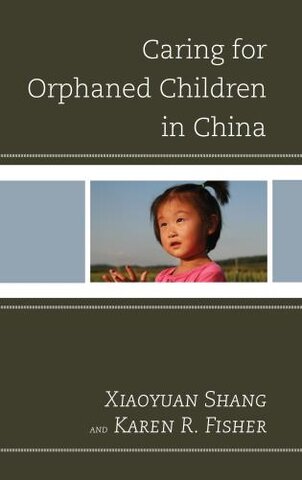This book by Dr. Xiaoyuan Shang and Karen Fisher provides a comprehensive and clear picture of the situation of children who are orphaned or abandoned in China. Based on research conducted as part of related projects from 2001 to 2012, it introduces the context and framework for the alternative care system and China’s welfare system as it applies to children, including its history and development in both urban and rural areas. It provides a profile of orphans and of care arrangements, describing both the formal child welfare system that has primary responsibility for the care of orphans in state care, and the informal care system, particularly the use of kinship care, in rural China, urbanizing rural communities, rural migrant workers areas and in an Autonomous Region of the country. It discusses the principles of good practices in alternative care and uses case studies to understand the achievements and gaps in China’s alternative care practice, highlighting some good practices and new approaches. It summarizes recent policy changes and draws conclusions about what the research means for the future of Chinese alternative care and the rights of orphans in China.
The authors find that China has two welfare strands for orphaned children that operate separately, rather than being integrated. The first is informal kinship care for orphaned children who have relatives and family networks on whom they can rely. The second is a state monopolized system to support and care for orphans and abandoned children whose parents and relatives cannot be found or contacted. The two strands are based on different principles and laws. Yet China’s child welfare system is experiencing important policy changes in the direction of complementary integration. Registered orphans are covered by a living allowance, partly subsidized health care, free compulsory education, and alternative care formally or informally arranged. In some wealthier areas, subsidized housing for orphans’ families is beginning to be available. However, according to the authors, China’s administrative structures do not yet reflect the organizational authority for local responsibility to implement and coordinate child welfare in both parts of the system. Coordinating child welfare is not yet embedded in the overall social welfare systems. Local approaches to alternative care vary, with opposite trends observable in different parts of China—at best, partial formalization of kinship care, non-kinship foster care, support for orphans in the community, and greater professionalization of the care of orphans with disabilities; and at worst, the re-institutionalization of orphans in some cities.
The authors also find that the central level of government has not yet wholly accepted changes to underlying principles and ideology to recognize better practice or children’s rights to care outside an institutional environment. Institutional care still remains the dominant form of care even after two decades of successful pockets of experience with community based approaches. The book argues that a mixed welfare system, in which state provision supplements family and community care, could be an effective policy direction to improve support for orphaned children in China. Adequate support and care for Chinese orphans and other vulnerable children is unlikely with only one of the current separate pillars. Instead, a mixed welfare regime, where the government takes responsibility to guarantee orphans’ rights as children, and support family networks to provide care so that children are able to grow up within their own communities, can build on the benefits of both.
This book is available for purchase by clicking on the link above.

